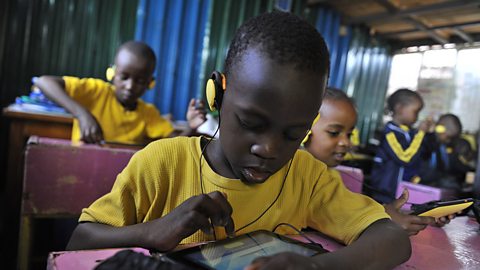Case study - aid - Kenya
More than 17 million Kenyans do not have access to safe water. This has an enormous effect on health and infant mortality. 33 million Kenyans do not have access to a toilet and more than 10,000 children in Kenya die every year from diseases like diarrhoea and malaria.
Non-governmental aid
Christian Aid, together with its partner, Maji na Ufanisi, which means 'Water and Development', has been working in the slums of Nairobi, such as Matopeni, to provide clean and safe water supplies. Measures include:
- A system of drains has been installed to remove waste from the slum and prevent flooding - a significant problem during the rainy season.
- A sanitation block - partly funded by the local government, consisting of toilets, showers and a water kiosk has been built. Training has also been given in how to manage them.
- Local people have been employed to clean and maintain the toilets and showers.
Outcomes
- Fewer cases of illnesses have been reported since the drains were installed.
- Clean drinking water, which has improved peopleÔÇÖs health.
- Attitudes have changed towards health and sanitation.
Foreign aid
In 2012, Kenya received $2654 million (US$) in foreign aid, making it the 11th largest recipient of aid. Foreign aid is given by governments through individual countries' international aid agencies and through multilateral institutions such as the World Bank. Aid given is generally intended for a specific use:
- building and infrastructure improvements
- funding education programmes or initiatives
- sending experts (such as doctors) into areas to help set up projects
- providing basic provisions - such as food and other essentials following a disaster
